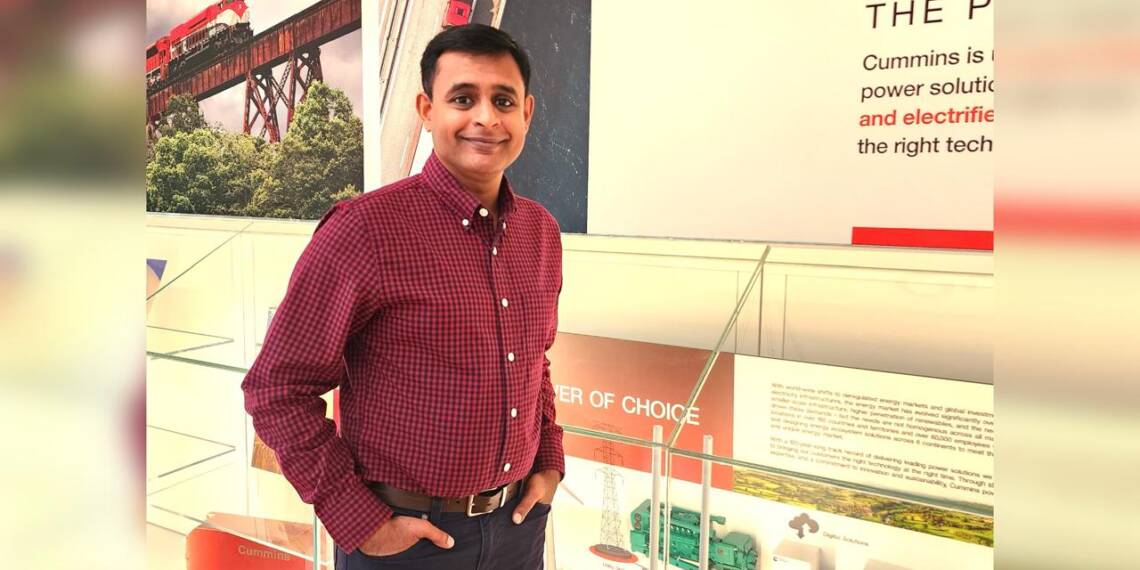The automotive industry has long been a leader in technological innovation, and with the rise of Artificial Intelligence (AI) and Machine Learning (ML), its landscape is undergoing yet another transformation. Predictive maintenance, an advanced approach to vehicle upkeep, leverages AI and ML to foresee and prevent potential breakdowns, offering an evolution from the traditional reactive and preventive maintenance strategies. This shift is not only enhancing vehicle reliability but also significantly cutting costs, reducing downtime, and promoting environmental sustainability.
The integration of AI and ML into predictive maintenance for automotive systems by Roopak Ingole has had a significant influence on this change. Starting his career as an Apprentice Engineer at KPIT Cummins Infosystems Ltd in 2002, Ingole has risen to become the Director of Advanced Electronic Systems and Strategy at Cummins Inc. Over his two-decade career, he has contributed to the development of cutting-edge electronic systems and embedded software that are now central to modern automotive technology.
Predictive maintenance stands out as a game-changer in automotive systems, primarily due to its data-driven nature. By utilizing AI and ML, vehicles can now be monitored in real-time, with data from numerous sensors being analyzed to detect anomalies before they lead to significant failures. For instance, AI algorithms can process data on engine temperature, oil pressure, and brake conditions, predicting when a part is likely to fail. This level of insight enables maintenance schedules to be tailored specifically to each vehicle, reducing unnecessary interventions and prolonging the lifespan of components.
Ingole’s work at Cummins Inc. exemplifies the real-world application of these technologies. His leadership in developing and implementing embedded control software has led to remarkable advancements, such as a 15% reduction in warranty costs through innovative prognostic strategies. Moreover, his strategic vision has driven the adoption of Agile methodologies, enhancing software development efficiency across multiple projects. One of his most notable contributions is the architecture of an embedded solution for predictive analytics algorithms, which has significantly reduced warranty costs and improved the overall reliability of powertrain systems.
At Cummins, Ingole played a crucial role in the development of the Embedded Field Performance Analytics system, embedding AI-driven analytics algorithms into the Engine Control Units (ECUs). This innovation reduced data transmission costs by 80% and enabled the development of advanced predictive maintenance models. These models are now pivotal in minimizing truck downtime, a critical factor in the logistics and transportation industry. “By embedding intelligence directly into the vehicle’s control units, we’ve moved from a reactive to a proactive maintenance strategy, ultimately saving time, costs, and resources,” Ingole explains.
The impact of the work extends beyond cost savings and operational efficiency. His projects, such as the Enhanced GPS for MotoTRBO Radios, have increased the reliability of location tracking systems by up to 90%, while his leadership in developing a Wide Area Trucking System improved customer satisfaction through Agile practices. These innovations have not only set new benchmarks within his organization but have also influenced broader industry practices, particularly in the areas of automotive software development and embedded systems.
One of the biggest projects under Ingole’s guidance was the implementation of AutoSAR at Cummins. This transformation was crucial in meeting the industry’s stringent functional safety and cybersecurity requirements. The methodologies he developed for rapid control development within the AutoSAR framework allowed the research team to reduce software integration time by nearly 70%, underscoring his ability to translate complex technological needs into practical, efficient solutions.
The incorporation of complex encryption technologies into embedded systems with constrained memory and processing power posed a considerable obstacle, though, on the path to these accomplishments. Before the availability of hardware-based security solutions like Trusted Platform Modules (TPMs), Ingole developed custom software encryption, ensuring basic security measures were in place. These early innovations laid the groundwork for the more advanced security protocols used in today’s automotive systems.
Ingole’s contributions have not gone unnoticed in the academic and professional communities. His research papers, including those on frugal innovations in the water sector and the integration of AI in automotive systems, reflect his commitment to advancing technology through rigorous inquiry. His published works, such as “Enhancing Systems Engineering and Control Development: The Power of Model-Based Approaches in the Early State of Product Development,” highlight his focus on leveraging model-based approaches to improve product development processes. These scholarly contributions have provided valuable insights into the challenges and opportunities of integrating AI/ML in embedded systems, reinforcing his role as a thought leader in the field.
Ingole has high hopes for the advancement of predictive maintenance in automotive systems through the use of AI and ML. “The integration of AI and ML is just the beginning. As we continue to refine these technologies, we’ll see even greater improvements in vehicle safety, efficiency, and sustainability,” he predicts. His vision aligns with the broader industry trend towards more intelligent, connected, and autonomous vehicles, where predictive maintenance will play a crucial role in ensuring their reliability and performance.
The integration of AI and ML in predictive maintenance is reshaping the automotive industry. These technologies are enabling more efficient, cost-effective, and safer maintenance practices, which are essential as vehicles become more complex and interconnected. The work of pioneers like Roopak Ingole not only demonstrates the immense potential of these technologies but also sets a path for future innovations that will continue to drive the industry forward. As the automotive sector embraces these advancements, the benefits ranging from reduced downtime to enhanced environmental sustainability will undoubtedly transform the way we approach vehicle maintenance and management.








